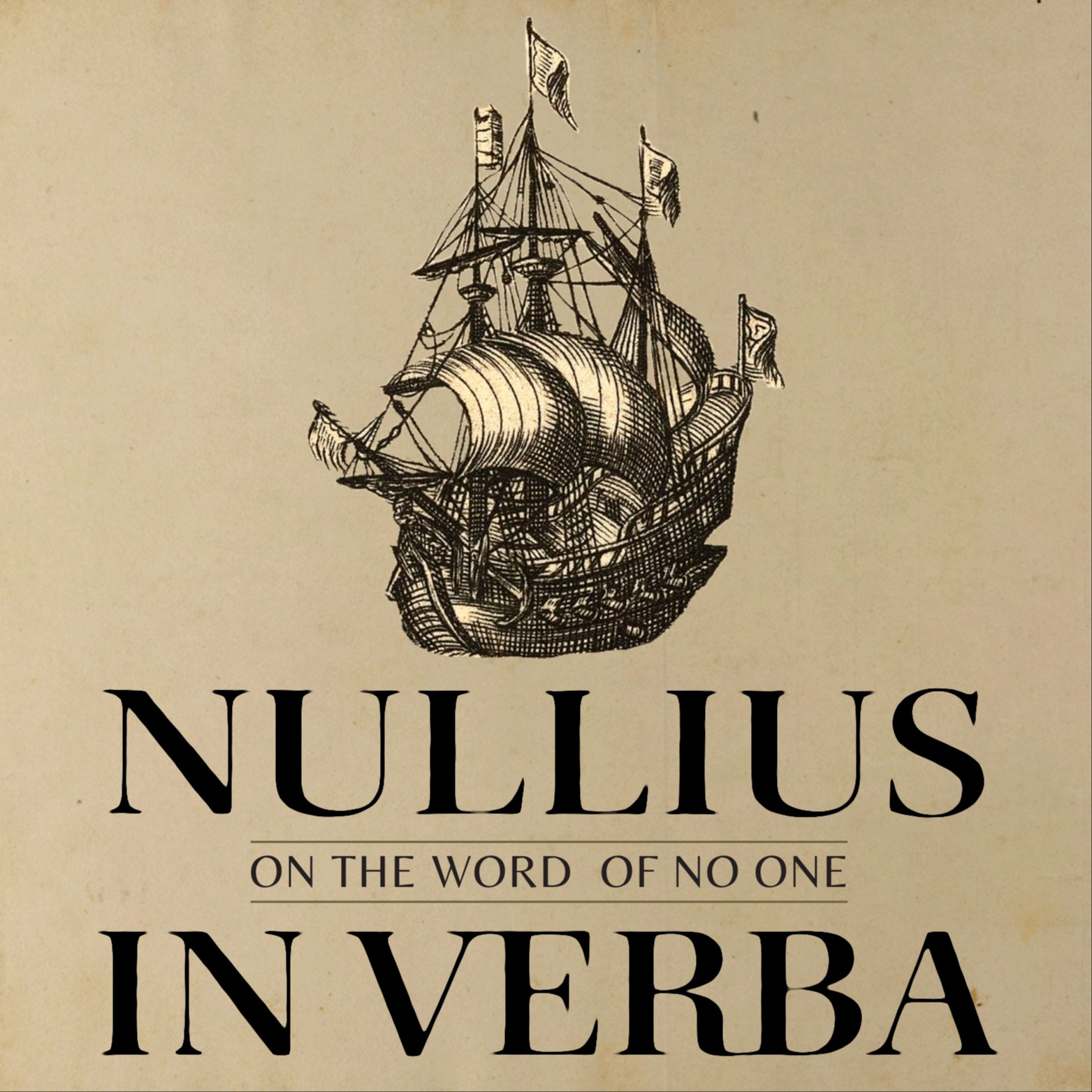

Nullius in Verba
Smriti Mehta and Daniël Lakens
Nullius in Verba is a podcast about science—what it is and what it could be. It is hosted by Smriti Mehta from UC Berkeley and Daniël Lakens from Eindhoven University of Technology. Our logo is an homage to the title page of Novum Organum, which depicts a galleon passing between the mythical Pillars of Hercules on either side of the Strait of Gibraltar. The title of the podcast comes from the motto of the Royal Society, set in typeface Kepler by Robert Slimbach. Our theme song is Newton’s Cradle by Grandbrothers.
Episodes
Mentioned books

Aug 16, 2025 • 47min
Episode 64: Scientia de Scientia - I
Delve into the intriguing realm of metascience, exploring its historical roots and its distinction from the philosophy and history of science. The conversation emphasizes the importance of understanding scientific methods and historical context for improving practices. Discover how psychology intertwines with scientific inquiry, the significance of academic freedom, and the challenges posed by replication studies. Plus, learn about innovative courses aimed at bridging gaps in metascience education and fostering integrity in academic publishing.

Aug 8, 2025 • 50min
Prologus 64: Why Metascience? (M. Bunge)
Bunge, M. (1959). Why metascience? Metascientific Queries (pp. 3-27). Charles C Thomas.

Aug 1, 2025 • 1h 8min
Episode 63: Experimenta Praematura
The podcast dives into the potential pitfalls of premature experimentation in psychology. It questions whether traditional methods overshadow other approaches, using an amusing Martian analogy to illustrate funding disparities in research. Historical critiques and the evolution of psychological methodologies are dissected, highlighting the need for diverse research techniques. A discussion on the significance of qualitative research reveals its often-overlooked value. The complexities of measuring true understanding and the pitfalls of conventional norms provide a compelling call for innovation in psychological inquiry.

Jul 4, 2025 • 1h 8min
Episode 62: Experimenta Exploratoria
Dive into the fascinating world of exploratory experimentation, where scientists venture into the unknown without rigid hypotheses. Discover why this innovative approach is often undervalued in the research community, contrary to its potential for groundbreaking findings. The importance of transparent documentation in building credibility is highlighted, along with the challenges young researchers face amidst academic pressures. Plus, explore the unique crossroads of psychology, AI, and sports science that redefine how we understand exploratory research.

Jun 20, 2025 • 1h 15min
Episode 61: Septem Vacae Sacrae III
This is the final installment of the three-part series on Paul Meehl's unpublished book, The Seven Sacred Cows of Academia.

Jun 6, 2025 • 39min
Episode 60: Septem Vacae Sacrae II
Dive into the debate on classroom size and its effects on education quality, questioning if smaller classes really yield better results. Explore the gap between student expectations and faculty interactions, particularly in different classroom settings. The conversation critiques the pressures of academic publishing, emphasizing quality over quantity, and challenges traditional views on scientific contributions. Finally, it addresses the urgent need to rethink publication practices in academia, urging a shift from personal gain to meaningful scholarship.

May 23, 2025 • 1h 9min
Episode 59: Septem Vacae Sacrae I
Dive into the complexities of higher education as the hosts dissect Paul Meehl's unpublished insights on transforming academia. They tackle pressing budget cuts, questioning long-standing beliefs and advocating for a deeper integration of teaching and research. Explore the dynamics of vocational education, contrasting cultural perceptions of student preparedness, and the shift from traditional lectures to engaging online formats. This engaging discussion challenges the norms while envisioning a more effective and inclusive educational landscape.

May 10, 2025 • 57min
Episode 58: Communicatio Scientiae
In this episode, we discuss science communication. What is the purpose of science communication? Who does or should engage in it? Are there negative consequences of communicating science to the public? And what should we discuss over coffee and sandwiches?
Shownotes
Joubert, M. (2019). Beyond the Sagan effect. Nature Astronomy, 3(2), 131-132.
Martinez-Conde, S. (2016). Has contemporary academia outgrown the Carl Sagan effect?. Journal of Neuroscience, 36(7), 2077-2082.
Turner, J. (1962). Some Coffee and Sandwiches? Science, 136, 231-231.
Bruine de Bruin, W., & Bostrom, A. (2013). Assessing what to address in science communication. Proceedings of the National Academy of Sciences, 110(3), 14062-14068.
Burns, T. W., O'Connor, D. J., & Stocklmayer, S. M. (2003). Science communication: a contemporary definition. Public Understanding of Science, 12(2), 183-202.
Fischhoff, B. (2013). The sciences of science communication. Proceedings of the National Academy of Sciences, 110(3), 14033-14039.

21 snips
Apr 25, 2025 • 1h 14min
Episode 57: Censura
Censorship in the Sciences: Interdisciplinary Perspectives Conference: https://dornsife.usc.edu/cesr/censorship-in-the-sciences-interdisciplinary-perspectives/
How Woke Warriors Destroyed Anthropology - Elizabeth Weiss https://www.youtube.com/watch?v=RpWN_CsuiRc&t=392s
Clark, C. J., Jussim, L., Frey, K., Stevens, S. T., Al-Gharbi, M., Aquino, K., ... & von Hippel, W. (2023). Prosocial motives underlie scientific censorship by scientists: A perspective and research agenda. Proceedings of the National Academy of Sciences, 120(48), e2301642120.
The vertebra of Galileo in Palace Bo in Padova: https://heritage.unipd.it/en/vertebra-galileo/
The association between early career informal mentorship in academic collaborations and junior author performance https://www.nature.com/articles/s41467-020-19723-8
Stefano Comino, Alberto Galasso, Clara Graziano, Censorship, industry structure, and creativity: evidence from the Catholic Inquisition in Renaissance Venice, The Journal of Law, Economics, and Organization, 2024, ewae015, https://doi.org/10.1093/jleo/ewae015
Bernouilli’s fallacy https://aubreyclayton.com/bernoulli
Jerzy Neyman: A Positive Role Model in the History of Frequentist Statistics https://daniellakens.blogspot.com/2021/09/jerzy-neyman-positive-role-model-in.html

Apr 4, 2025 • 1h 9min
Episode 56: Cur Plerumque Investigatio Publica Falsa Est
The hosts dissect the impactful research of Ioannidis, revealing the alarming prevalence of false findings in behavioral sciences. They address the crises of credibility and research biases, like p-hacking, that endanger scientific integrity. Listeners learn about the complexities of probability in medical research and the significance of replication. The discussion emphasizes the need for transparency and rigorous methods, shedding light on how flawed reporting can distort the truth in academic publishing.


